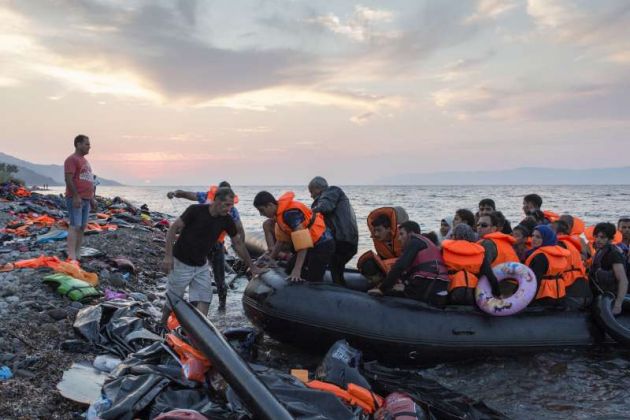Lutheran World Federation and Islamic Relief Worldwide to publish manual on faith-sensitive humanitarian action

The Lutheran World Federation and Islamic Relief Worldwide are to publish guidance aimed at helping humanitarian agencies to do more to attune the work they do to the faith and background of people affected by conflict, disaster and displacement.
The guidance will be published on June 29 and has been developed through a diverse partnership of both faith-based and non-faith based organizations at a United Nations event, LWF said.
It comes at a time that UN agencies are increasingly engaging faith-based organizations (FBOs) in their humanitarian work which continues to escalate globally to unprecedented proportions.
They involve the UN Refugee Agency (UNHCR), the International Federation of the Red Cross and Red Crescent (IFRC), Church of Sweden, HIAS and World Vision alongside LWF and IRW.
The aim is to ensure that emergency response truly respects the dignity of those affected by crises, by taking seriously their faith identity.
"The vast majority of people have some form of faith or religious identity," explained LWF general secretary, Rev. Martin Junge.
"When disaster strikes or conflict erupts and they have to leave their homes, they don't leave their faith behind. Faith stays with them as a powerful source of resilience and hope in their efforts to rebuild their lives."
He said the intention of faith-sensitive psychosocial support is to address their needs and the communities where they settle, whilst remaining true to humanitarian principles of impartiality and neutrality.
The manual is entitled "A Faith-Sensitive Approach in Humanitarian Response: Guidance on Mental Health and Psychosocial Programming."
It is designed to assist both secular and faith-based organizations in their work with refugees and host communities.
GUIDELINES
The manual is closely aligned with the Inter-Agency Standing Committee (IASC) Guidelines on Mental Health and Psychosocial Support in Emergency Settings and is available on the IASC website (see below).
It aims to strengthen the support given to refugees and displaced people through more effective engagement with local faith communities and religious leaders during humanitarian emergencies.
It focuses on the faith perspective and needs of displaced people themselves, rather than on the faith allegiance or secular nature of the humanitarian agencies supporting them.
The guidance addresses faith-sensitivity right across the spectrum of humanitarian response.
Sensitivity to religious identity is not only related to the spirituality of those fleeing disasters or conflicts, or the psychological, medical and social arenas, but it also affects practical aspects such as appropriate food, shelter, meeting spaces. The manual addresses these.
"Our pilot projects have shown that religion can be a powerful source of coping and resilience in time of emergency, but it may also be used to promote harmful practices or undermine humanitarian programming efforts," said Naser Haghamed, CEO of IRW.
"Our manual seeks to guide humanitarian organisations in their efforts to engage with local faith actors through the "do no harm" principle."
